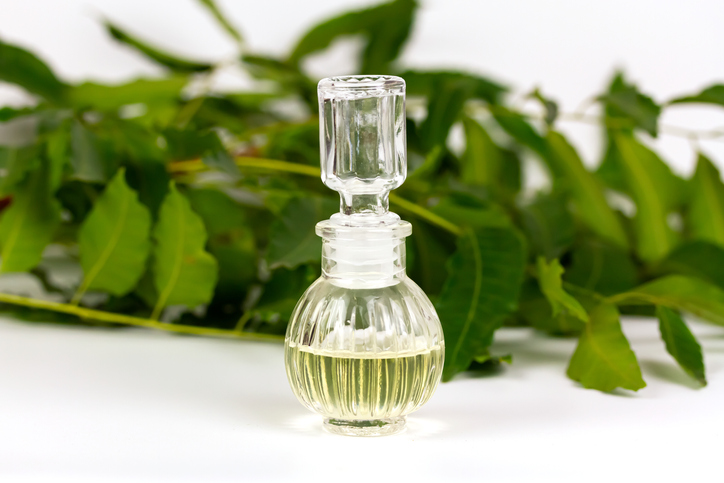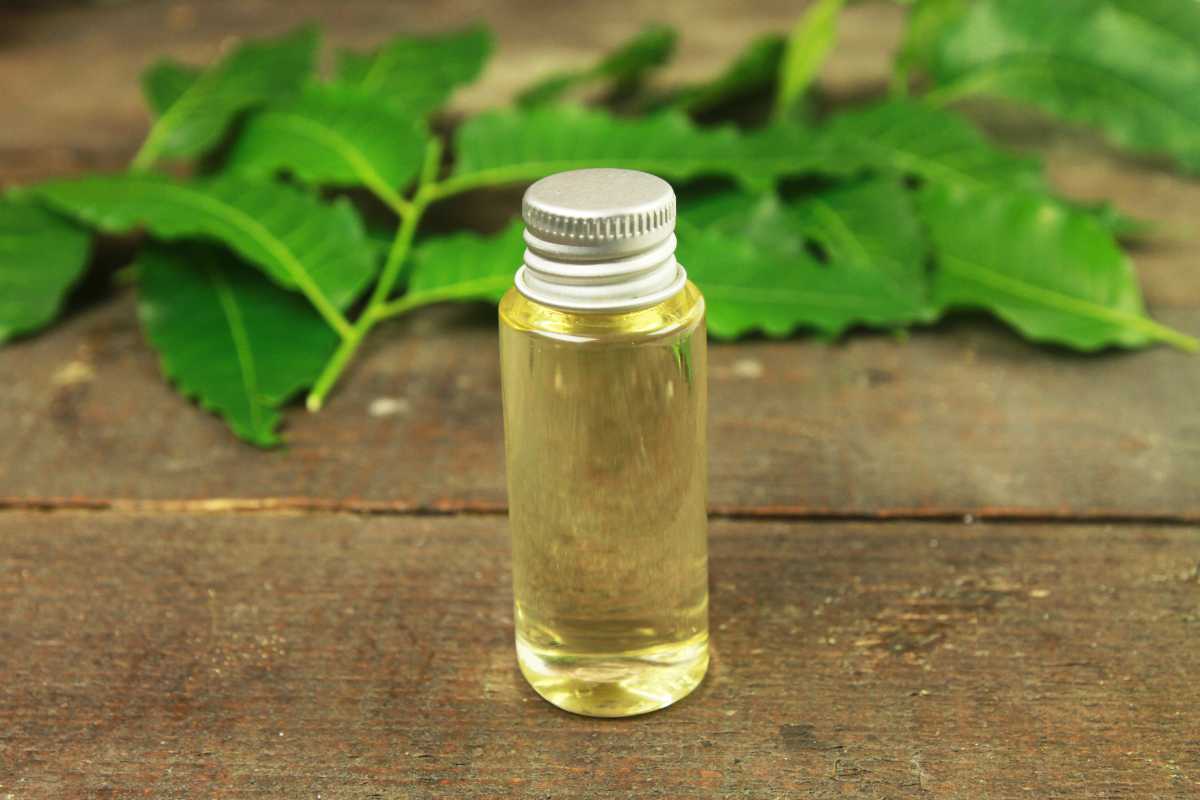Nobody has to guess what neem oil is good for. It’s known for wide medicinal applications, and if you don’t know yet, it is also popular among weed growers.
Neem has been used for centuries for pest control in organic growing. Native to the Indian subcontinent, neem has many compounds in it, with the most valued extract being Azadirachtin— which is the most important in repelling and killing common plant pests.
Neem has a bitter taste and a bad smell. These two combinations make anything neem touches unsavory. Unpalatable. But thanks to the Azadirachtin, it can still do more than just repel the bugs.
When you don’t want even the slightest effects of chemical pesticides on your buds, using neem oil is an excellent way to deal with pests that might invade your farm.
Neem is gentle on the plant’s leaves. Once you mix it with water in appropriate proportions, you can apply it to the leaves without subjecting the plant to undue stress.
However, cannabis plants are very vulnerable towards flowering. Thus controlling pests when the flowers are opening up is a tad too difficult. You’d want to know the kind of stress you’re subjecting your plants if you use neem oil on them.
Can I Use Neem Oil During Flowering?
Do not use neem oil during flowering because it will alter the taste of buds. Though it is still an organic pesticide, it has a strong smell that sticks with the flowers, resulting in unfamiliar flavors.
You shouldn’t use neem oil during flowering in any form. Whether you foliar spray or use it in the soil, the plant will absorb it, and it will stay in their vascular system for a while, altering the taste and smell of your buds.
If your plant is infested during flowering, you should use other organic methods, like mixing 5ml of baking soda per 1L of water and spraying your plants with it. Baking soda won’t alter the taste of your buds but still does a good job at controlling pests.
RELATED READ: Why Does My Bud Smell Weird?
Neem is beneficial in controlling pests on all plants, but for cannabis, the flowering period is particularly vulnerable. It’s the time the flowers open up, and when you spray any strong-smelling pesticide, it lasts with it. Thus, altering the natural weed experience.
If you’ve ever used tomatoes that smelt of pesticide, you’d understand how a well-intentioned organic plant-saving attempt can alter your cannabis experience. Tomatoes reeking of pesticides have no room in the salad; they should be tossed.
Same way, buds that smell nothing like cannabis aren’t any fun to smoke.
That doesn’t make neem a poor choice when you decide to control pests organically. Neem is a wonder plant. It can be used not only to save what remains of already-infested plants but also to prevent the invasion.
Insects, bacteria, and fungi that attack the plant need to eat from it. All of the damage that the plants go through is a result of these insurgents trying to survive. Neem oil makes the plant unpleasant for them. Thus they leave to find other edible plants elsewhere.
RELATED READ: How To Get Rid Of Thrips On Flowering Cannabis
If you apply neem before they invade, they won’t attack the leaves. They won’t survive in your grow room, but even after they come in, foliar spraying the plants will remove them from the infected leaves.
Neem also makes it hard for the pest to multiply as it inhibits egg-laying. This makes it easier to lay siege and deal with a recurring problem typical of fungal infections.Using neem on flowering plants results in not-so-good smelling buds. Thus, it must be avoided.
When Should You Apply Neem Oil On Cannabis?
You can apply neem oil on the cannabis plant either by spraying or in the soil at any time during the plant’s growth, except during flowering. Most growers shift to other less fragrant organic pesticides once the plants begin to flower to retain the natural weed flavors.
How you use neem oil matters too but depends entirely on where you’re attacking the pests. If the pests are in the soil, drenching the neem in the soil does a better job and lasts longer in the soil.
If the pests are on the leaves, using foliar spray will get rid of the pests quicker.
When sprayed, neem only lasts for 45 minutes on the leaves. Thus, you might have to repeat the process to get rid of stubborn fungal infections.

How Neem Oil Works As An Organic Pesticide
Neem oil might be organic, but it isn’t kind to pests. Different bugs will feel the pain differently, but neem will make it hard for them to replicate and live.
According to The American National Research Council’s book Neem: A Tree for Solving Global Problems, neem oil inhibits mating, sexual communication, development of eggs, larvae, and pupa, and even poisons the adult insects.
Neem oil suffocates the bugs by blocking the skin openings through which they breathe. It also inhibits the production of chitin which helps in the formation of the exoskeleton.
Insects find it hard to get in contact with neem and get through it alive because it attacks in more than one way. Some insects won’t swallow anything, thus dying of dehydration and hunger sooner than should be possible with most organic pest control methods.
Frequently Asked Questions
You don’t need to rinse off neem oil after use. However, ensure you mix it with water appropriately before spraying. Neem oil gets absorbed by the plant— both as a foliar spray and when you use it in the soil. Thus, rinsing off isn’t necessary after application.
Neem oil, when used as a foliar spray during rain, will get washed off. Though the plant absorbs neem oil, it takes time. If it rains after you’ve applied it, be sure to repeat the process after the rain.
However, if the plant had time to absorb the treatment— especially if it absorbs it from the roots- rains will have little effect because the treatment will already be in itsvascular system.
Neem oil is highly potent, but it is safe for plants. Apart from altering the natural taste and aroma of the buds, neem oil won’t affect your plants adversely if you mix it with water accordingly.
In conclusion, neem oil should never be used during flowering to control pests as it will alter the taste and flavor of your buds. Neem remains a go-to organic pest control method, but it can do your plants more harm than good during flowering. Try other methods like using baking soda or alcohol.
External sources:

